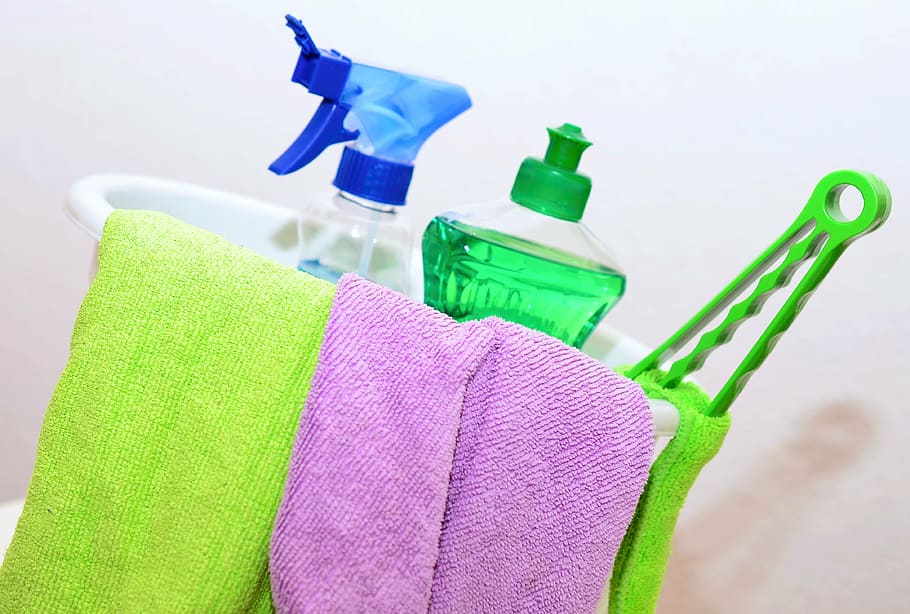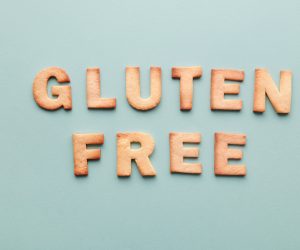
Swap Out Hazardous Household Cleaning Products for These 8 Nontoxic Alternatives
Stephanie Woods via NaturalHealth365 – Every day we use products to clean our homes, sanitize surfaces, and freshen the air, all in the name of creating a healthy living environment. And why not? Ads we see on the TV, internet, and in magazines, placed by companies that claim to have not only our best interest at heart but our families as well, promise a clean, healthy, safe home.
Why wouldn’t we believe them?
Unfortunately, too many people are taught to trust those in power, the ones with the money, larger than life because “they know what’s best for us.” And those same people follow without question, allowing these entities to introduce toxic substances into our food, water, and the products used to supposedly clean our homes and create a healthy, safe environment. But researchers are uncovering startling information that tells a different story. The majority of common, popular household cleaning products are devastatingly harmful to humans and pets.
Common Household Cleaning Products May Be More Harmful Than Previously Thought
It is well documented that the only way to get past a tainted food supply is to buy local, organic, and fresh – and even that is questionable. Unsafe water is another concern that is finally coming onto the public’s radar. Toxic household cleaners are not necessarily a new conversation, but it is gaining more traction as research reveals just how hazardous they are.
An alarming body of research recently published by the University of Bergen in Norway found that long-term use of cleaning products (once a week for twenty years) could have the same effect on the human body as smoking 20 cigarettes a day over a ten to twenty-year period. Researchers believe that this damage could occur due to the irritation of the mucous membranes that line the lungs caused by exposure to the chemicals in the cleaning products. Inhaling these chemicals frequently (at least once a week) over a long period of time (around twenty years) can result in airway changes that are destructive and extremely harmful.
After all, the particles that are contained in the cleaning products are intended to clean surfaces, not enter the human body or be inhaled into the lungs. The containers have strong warnings about ingesting the products, but the truth is, the mucous membranes aren’t the only vulnerability; the eyes and skin are also significant conduits by which toxins can enter the body. This includes exposure to toxins during application or use and any airborne contamination lingering after the product has been used. This endangers others who may not have had direct contact with the products due to use but are present in the living environment and touch the surfaces or breathe in the fumes – even long after the product was used.
The research concluded that household cleaning products create as much air pollution as cars.
Exposure to Household Cleaning Products Can Lead to Severe Adverse Health Effects
Chronic or long-term exposure to household disinfectants, sanitizers, and cleaners has been linked to several serious health conditions, including:
- Increased asthma symptoms and complications
- Increased risk of conditions associated with asthma such as COPD, scarred lung tissue, and lung infections
- Low sperm count
- Increased risk of developing COPD
- Miscarriage
- Damage to the nervous system
- Headaches or migraines
- Menstruation irregularities in women
- Symptoms of airway irritation or inflammation, including wheezing, chest pain, and shortness of breath
- Increased risk of pneumonia caused by exposure via inhalation
Products that top the list as most hazardous include those that contain corrosive chemicals, such as drain cleaners, oven cleaners, and toilet bowl cleaners. Ammonia and chlorine are also harmful chemicals that many cleaning products proudly advertise right there on their labels.
Laundry detergents, dryer sheets, and fragrance products are also laden with harmful chemicals. Many fragrances that are added to cleaning solutions can also cause serious health problems.
Ditch Harmful Products and Try THESE Nontoxic Alternatives
Cleaning your home should be to rid your living environment of harmful toxins, not introduce more of them. Harsh chemicals may remove dirt and germs from surfaces, but the damage they do to the human body is a steep price to pay. Even products that carry an “organic,” “green,” or “natural” label or certification can still emit air pollutants that can be harmful.
Using nontoxic, truly natural cleaners will significantly reduce your risk of exposure to harmful chemicals while keeping your home healthy, clean, and sanitized. The good news is all you need are eight staples that are probably in your pantry right now:
- Baking soda
- Gentle, non-scratch scrub
- Oven cleaner
- Drain cleaner
- Carpet deodorizer
- Litter box deodorizer
- Castile soap
- Laundry soap
- Bath soap
- All-purpose cleaner for home
- Shower cleaner
- Coconut oil
- Antiviral, antibacterial, and antifungal cleaning solutions
- Clean wood furniture
- Sanitize wood cutting boards
- Use instead of WD-40 to lubricate squeaky hinges, etc.
- Moisturize leather goods (instead of leather conditioner)
- Essential oils (citrus is a good choice but eucalyptus, frankincense, peppermint, and tea tree oil are nice too)
- General cleaner (added to water)
- Insect repellant or “bug spray” (add a few drops of citrus, eucalyptus, frankincense, peppermint, or tea tree oil to water and put in a spray bottle)
- Room freshener
- Put in a diffuser during illness (frankincense cleans the air, eucalyptus helps relieve stuffy heads)
- Use in homemade laundry soap
- Hydrogen peroxide
- General cleaning solution
- Antibacterial cleaner
- Clean food prep areas
- Lemons (peel and juice)
- Clean and freshen refrigerator
- Clean and freshen garbage disposal
- Room freshener
- Clean cutting boards
- Clean coffee maker
- Furniture polish
- Rubbing alcohol (vodka also works)
- Countertop cleaners
- Sanitize surfaces
- White vinegar
- Disinfectant (follow with hydrogen peroxide for deeper disinfecting)
- Window cleaner
- Clean tile floors and bathtub (mix with baking soda)
- All-purpose cleaner for countertops (except stone, marble, or granite countertops)
- Bathroom grout
Using truly natural, nontoxic cleaning substances will help keep a healthier, cleaner home.
Sources for this article include:
ChildrensHealthDefense.org
Thoracic.org
OEM.BMJ.com
To read the original article click here.






